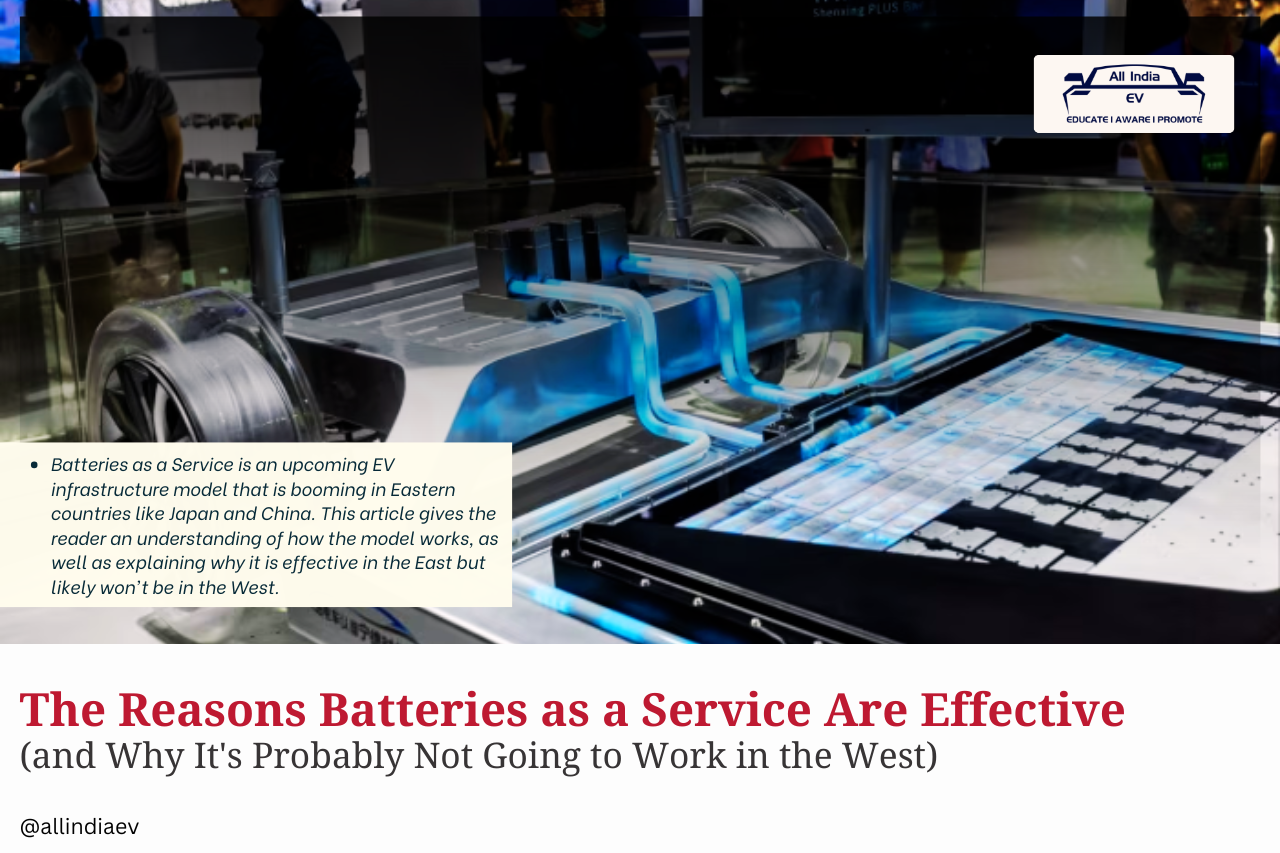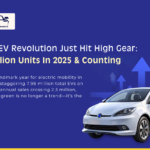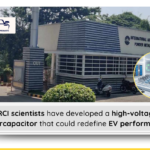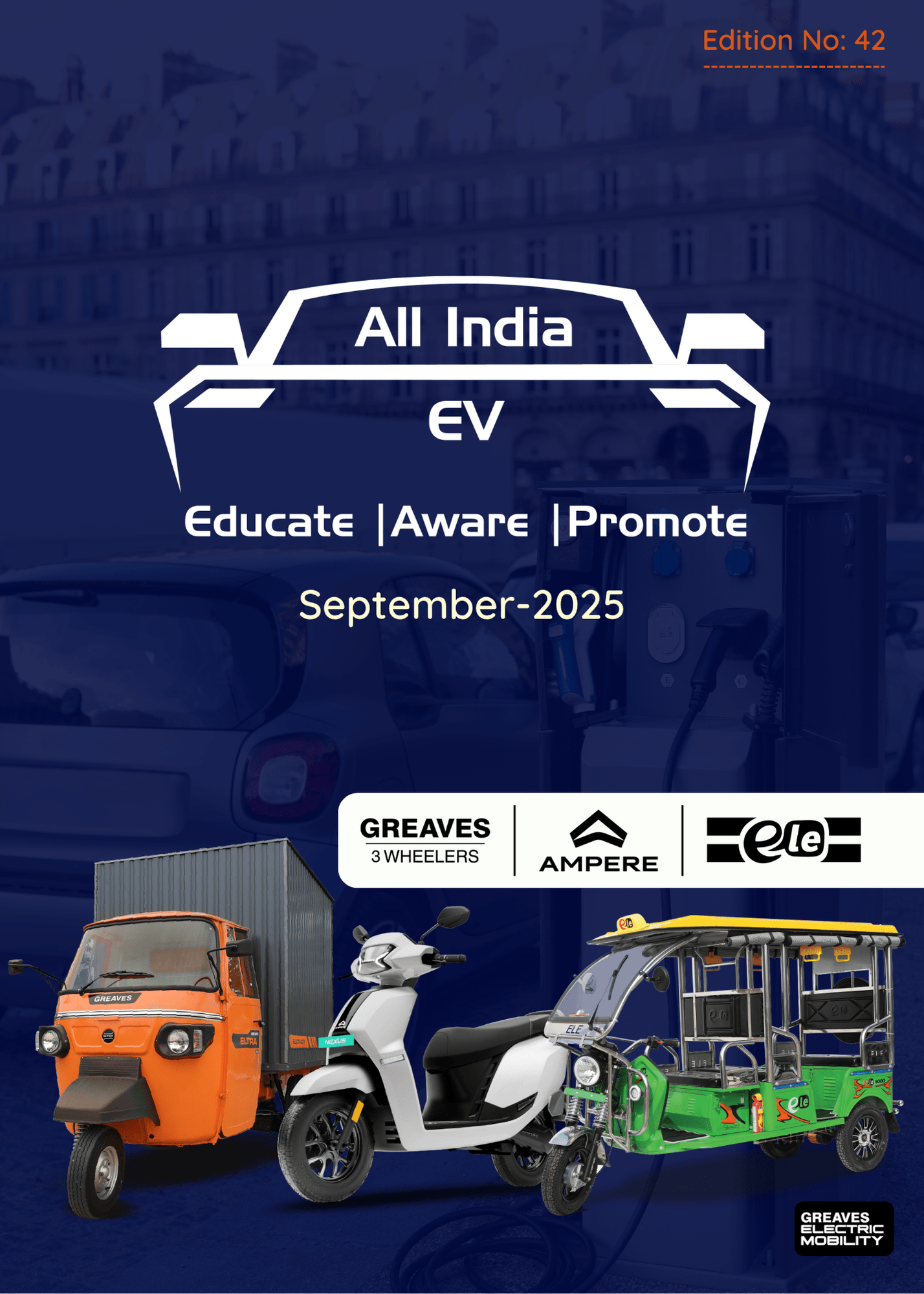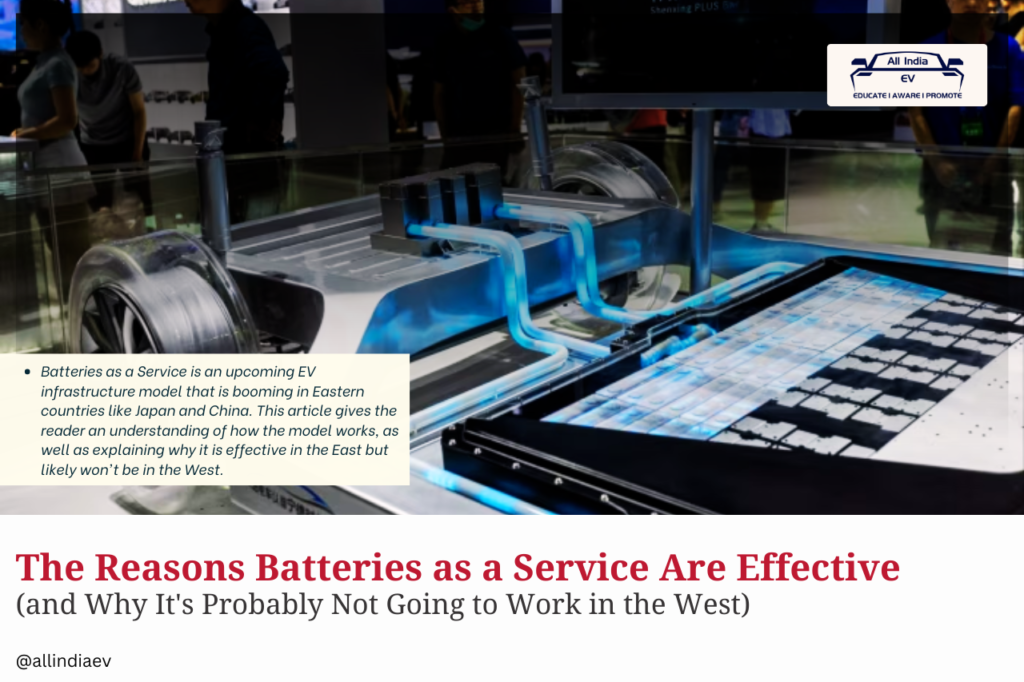
Batteries as a Service Booms in East: Why the EV Model Works in Asia but Faces Roadblocks in Western Countries
As electric vehicles (EVs) continue to gain momentum worldwide, an innovative model called Batteries as a Service (BaaS) is emerging as a potential game-changer—especially in densely populated Asian countries like India, China, and Japan. While this model is thriving in the East, experts say it faces significant hurdles in Western markets.
What is Batteries as a Service (BaaS)?
BaaS separates the cost of an EV’s battery from the vehicle itself. Instead of buying a car along with its battery, consumers purchase the vehicle and subscribe to a battery-swapping service. When the battery runs low, drivers simply visit a swapping station and exchange their depleted battery for a fully charged one in under five minutes.
This approach offers two major advantages:
- Lower upfront costs for EV buyers, since batteries typically account for 30-40% of the vehicle price.
- Reduced waiting time, addressing one of the biggest pain points of EV adoption—long charging durations.
Why Is BaaS Booming in India and China?
The model suits countries with high urban population density and limited home charging options—conditions found in India and China. In India’s bustling cities, millions rely on two- and three-wheelers, whose small, swappable batteries fit perfectly into the BaaS framework. The Indian government has even introduced policies to encourage battery swapping, aiming to accelerate EV adoption.
China, a global leader in this space, has heavily invested in battery-swapping infrastructure through companies like NIO. With strong government support, strict regulations, and standardized battery designs, China has created a seamless ecosystem where one swapping station can serve multiple vehicle brands.
Challenges for Western Markets
In contrast, BaaS faces significant barriers in the West. The lack of standardized battery designs across different manufacturers means creating universal swapping stations is complicated and costly. Furthermore, many Western EV owners live in suburban or rural areas with access to private home charging, reducing the demand for quick battery swaps.
Additionally, decentralized governance and infrastructure rollout make it difficult to scale swapping stations rapidly. By the time such networks would become viable, advances in fast-charging technology might render battery swapping less relevant.
Expanding Horizons: BaaS for Commercial Fleets and Urban Mobility
Beyond personal vehicles, BaaS is gaining ground in commercial fleets in both India and China, where operational efficiency translates directly into cost savings. The model is also being piloted for two- and three-wheelers in Indian cities, demonstrating its adaptability to urban environments.
Future Outlook: Lessons for India and Beyond
While BaaS may not be the one-size-fits-all global EV solution, it highlights crucial factors for successful electrification: urban density, government backing, and battery standardization. India’s proactive policies and growing urban population put it in a prime position to leverage this model.
Rather than attempting to replicate the BaaS model outright, countries worldwide can learn from it by:
- Expanding public charging infrastructure in cities.
- Upgrading the power grid to handle EV demands.
- Innovating in battery recycling and reuse to promote sustainability.
As India accelerates its EV journey, smart planning and infrastructure development—whether through battery swapping, fast public chargers, or home-based solutions—will be key to making electric mobility accessible and efficient for all.


